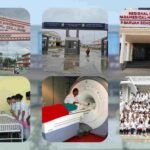Comprehensive Study Resources
Nursing students have access to a wealth of study resources designed to support their academic journey and professional development. Essential textbooks remain the cornerstone of nursing education, providing in-depth coverage of fundamental concepts. Key titles such as “Brunner & Suddarth’s Textbook of Medical-Surgical Nursing” and “Foundations of Nursing” are highly recommended. These comprehensive texts offer detailed explanations and are often accompanied by supplementary online materials.
In addition to traditional textbooks, online platforms have become indispensable. Websites like Khan Academy, Coursera, and Nursing.com offer a plethora of courses, video lectures, and interactive tutorials tailored specifically for nursing students. These platforms provide flexibility, allowing students to learn at their own pace and revisit complex topics as needed. Furthermore, many universities provide access to their own online learning management systems, where students can find course-specific materials and resources.
Interactive tools play a crucial role in enhancing the learning experience. Flashcards and quizzes are excellent for memorizing key terms and concepts. Apps such as Quizlet and Anki allow students to create custom flashcard sets and take quizzes on-the-go. Simulation apps, like the Nursing Simulator and Virtual Clinical Excursions, offer realistic clinical scenarios that help students apply theoretical knowledge in a practical setting, thereby improving critical thinking and decision-making skills.
Staying current with the latest research is vital for evidence-based practice. Academic journals such as the “Journal of Advanced Nursing” and “Nursing Research” provide access to cutting-edge studies and reviews. Reputable medical websites like PubMed and the National Institute of Health (NIH) are also invaluable resources for finding reliable and up-to-date information.
Effective organization of study schedules is key to maximizing the use of these resources. Time management tools, such as planners and digital calendars, can help students allocate sufficient time for each subject and ensure a balanced study routine. By utilizing a combination of textbooks, online platforms, interactive tools, and staying informed through academic journals, nursing students can enhance their learning experience and achieve academic success.
Practical Skills and Clinical Experience
Nursing education is a multifaceted journey that prepares students not only through theoretical knowledge but also through essential practical skills and clinical experience. The significance of hands-on training cannot be overstated as it bridges the gap between classroom learning and real-world application. This hands-on training is predominantly achieved through lab work, clinical rotations, and internships, which are integral components of a nursing program.
Lab work provides a controlled environment where students can practice and hone essential nursing skills such as patient assessment, administering medications, and performing various procedures. These foundational skills are critical for ensuring patient safety and delivering high-quality care. Clinical rotations, on the other hand, immerse students in real healthcare settings, allowing them to apply their knowledge in diverse medical fields such as pediatrics, geriatrics, emergency care, and mental health. These rotations offer invaluable insights into hospital protocols, patient interactions, and the operational dynamics of healthcare facilities.
Internships further enhance clinical experience by providing extended periods of practical exposure. During these internships, nursing students have the opportunity to build relationships with mentors, who can offer guidance, support, and professional advice. Engaging with experienced practitioners helps students understand the complexities of patient care and fosters a collaborative learning environment. Additionally, internships allow students to observe and participate in interdisciplinary teamwork, which is crucial for comprehensive patient care and professional growth.
Beyond technical competencies, the development of soft skills such as communication, empathy, and teamwork is paramount. Effective communication with patients, their families, and healthcare colleagues ensures clear understanding and coordination of care plans. Empathy enables nurses to provide compassionate care, addressing not only the physical but also the emotional needs of patients. Teamwork, meanwhile, is essential for fostering a collaborative and efficient healthcare environment, where each member’s contribution is valued and integrated into patient care strategies.
Mastering these practical skills and clinical experiences equips nursing students with the competence and confidence needed to excel in their careers. It prepares them to deliver high-quality patient care, adapt to various medical contexts, and continuously evolve as healthcare professionals.
